We hopped on a local bus; that is, a leaves-when-full bus. But before I could sit down I had to move a live chicken out of my seat. Its owner was also transporting a pair of new rubber boots, a small engine stowed in a bamboo basket, 2 dozen eggs, and a large bottle of Snow beer (the world's best selling beer btw).
Finally, after a load of lumber was stacked in the aisle and various cargo attached to the roof, we headed north. Along the way more passengers piled in and stacked their cargo in the aisle. At the county border, the police poked their head in the bus and then waved us on.
About 5 kms before BZL there was a sign that said "Pay fee 250 meters". The bus pulled over, a man came out of a small builing, walked around the bus peering in, and then tapped on my window. "Come with me", he motioned. And I alone had the pleasure of paying the 100 RMB fee for entering the BingZhongLuo Scenic Area. It was indeed a pleasure because all non-locals are supposed to pay the fee, but he did not notice Sun-Ling sitting in the seat in front of me, so we escaped with only one fee between us; fairly benign "racial profiling" by the lazy ticket seller.
In BingZhongLuo, we found a suitable hotel run by the Border Military Police, with heat and hot water, and pleasant young staff, all military policemen. At dinner, we ran into another American, Hope from Philadelphia, who is also traveling in Yunnan and walking the various old trails. Many tips and stories were exchanged.
The next day, after poking around town gathering info, we set out on what became an epic hike with 1000 meters elevation gain, vistas, stupas, bushwhacking and calf-deep snow.
Heading up after starting in town below. Still below the snowline at this point.
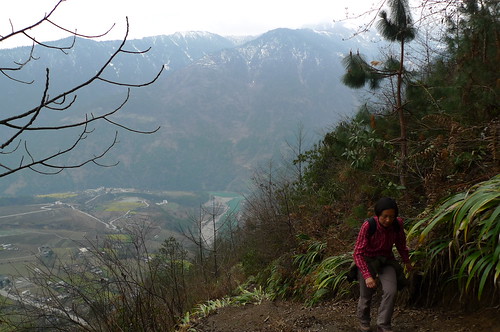
Almost at the turnaround point. The far mountains are on the other (east) side of the river.
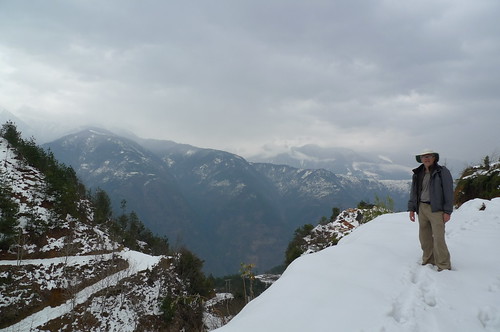
Passing some mines.
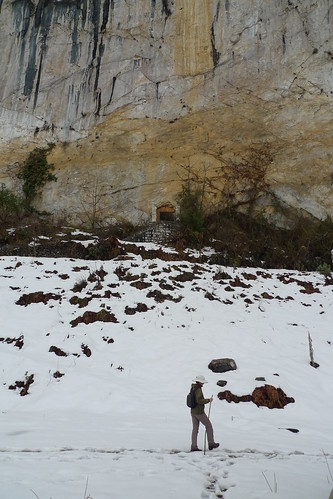
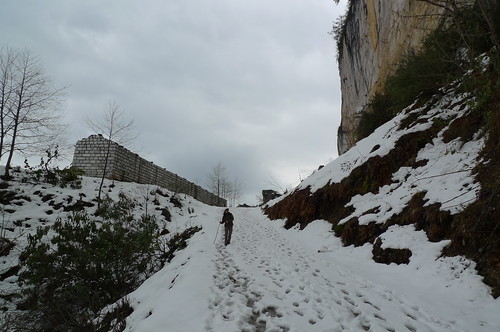
Great view of Bingzhongluo on the way down. Our hotel is on the main street - the only street.
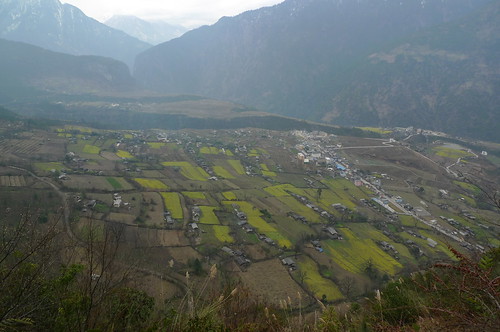
Day Two: Rain. So just a short walk to the First Bend of the Nu Jiang.
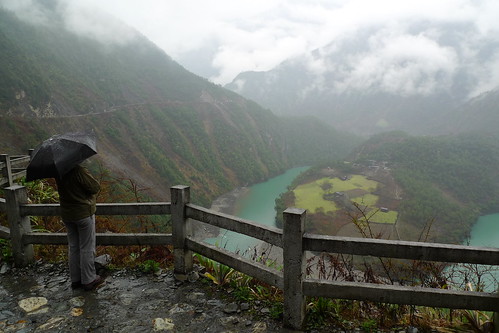
Day Three: Walked 15 kms North along the river and back, crossing a muddy landslide (mudslide) on foot one way and in a 4x4 the other, walking part of the Tea Horse Trail, and enjoying the views as the valley becomes a gorge, then a valley, then a gorge, then a valley again.
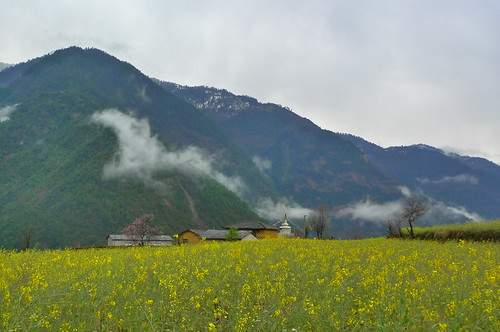
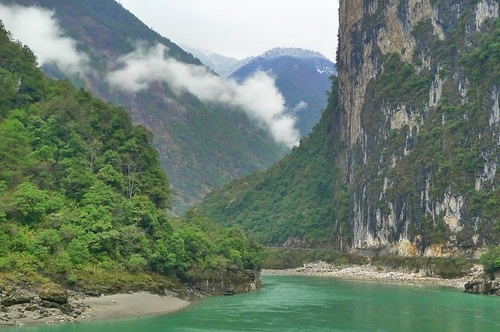
On the Tea Horse Road with WuLi Village in the background.
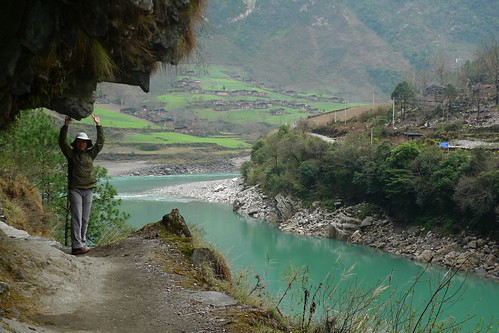
International Women's Day basketball game in Ni Da Dang Village.
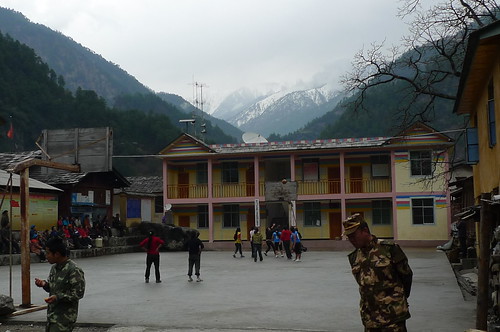
Day Four: Hiked up to the nearby Tibetan Temple. Then headed up the tributary that runs between the temple and BingzhongLuo with amazing waters, local woodcutters and bowmen, pigs, cows, and horses, and more snow-capped peaks.
The skies are clearing.
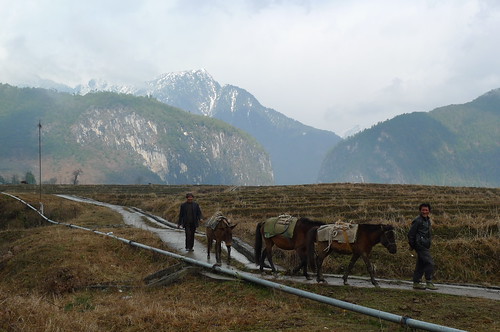
Tibetan Buddhist Temple.
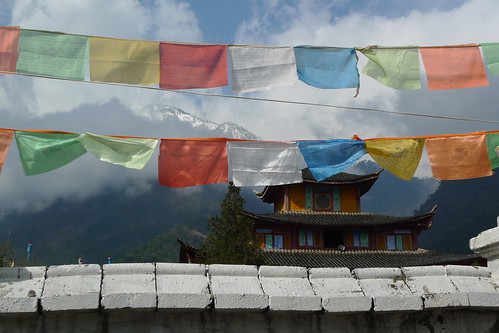
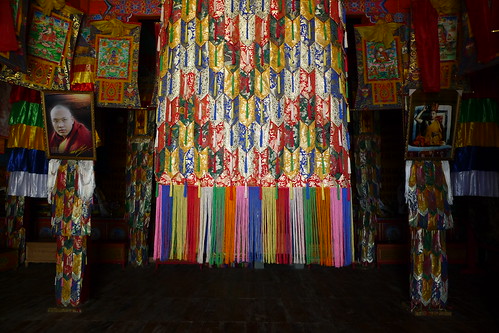
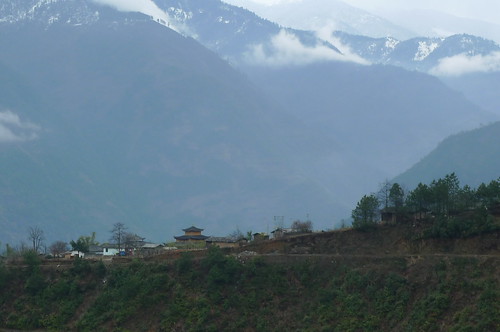
Local Bowmen. They really do use crossbows to hunt game.
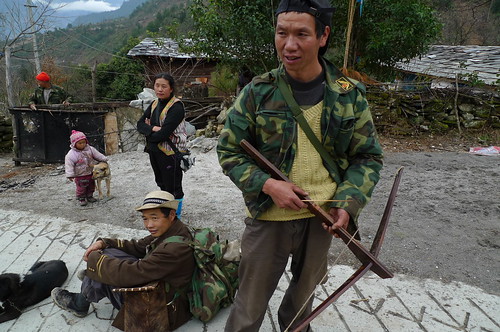
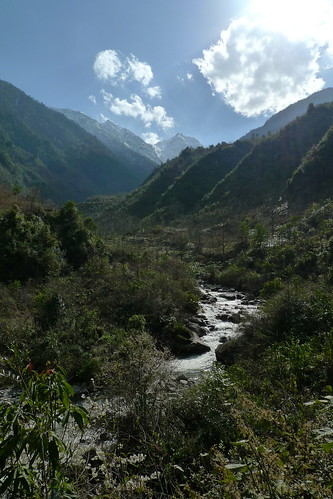
Based on this GM satellite view http://g.co/maps/ym52y the Nu Jiang continues to have many rapids along this segment. Zooming in, I can't discern hydro power dams. Are there any?
ReplyDeleteWhat game do the bowhunters seek with their, I'd say quite primitive, crossbows? More than you want to know: https://en.wikipedia.org/wiki/Crossbow
Just wow! Gorgeous photos and epic trip. Snow! Very energetic...
ReplyDeleteGlad to hear that Asian local buses are still Asian local buses, lol. Never heard of that beer, though.
I paid a similar foreigner-only fee on the way from Lijiang to Dali (not the well-known one) and the woman selling me the bus ticket went to great lengths to warn me - she wanted me to hike the Tiger Leaping Gorge trail instead.